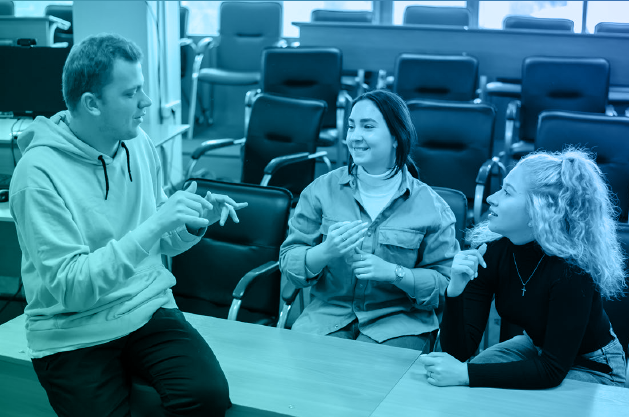Supporting disabled students: moving the needle

“One adjustment that I’ve been told is potentially possible is to have viva questions be given in advance for the PhD. But then nobody seems to know whether it’s possible. I spoke to the disability adviser, and it was like, ‘I don’t know if that’s a thing’. There’s no one else I can ask about that.”
– Focus group participant, ‘Mapping reasonable adjustments and transition support’
This is one of the views reflected in our recent research on reasonable adjustments and transition support for disabled students, with other voices lamenting inadequate training for staff, a lack of consistency in approach, funding challenges, questionable career advice and a paucity of senior champions.
We all know that access to and experience in higher education is not equal. Notably, disabled students are less likely to receive a first-class or upper second-class degree, regardless of their pre-entry grades, and are less likely to be in highly skilled employment or further study.
It is therefore clear that more needs to be done. And – to support providers in their legal duty to make reasonable adjustments – it is vital to establish what works, and for this to be shared and implemented with urgency so that disabled students can access their legal right to education.
Mapping the route
As rightly noted in a recent Wonkhe post, our report is a nudge, not a push, with the aim to provide evidence to move the needle towards full and fair access to education for disabled students. We recognise that it is the fuel, not the engine.
As an independent charity and What Works Centre we aim to reduce equality gaps for underrepresented and disadvantaged students through generating robust evidence about the efficacy of interventions.
However, knowing what works is not just about issues of methodology, research questions or technicalities. Knowing what works helps answer fundamental questions about whether rights and entitlements are being met, and what gaps remain.
Finding out what works to address those gaps and inequalities is important for improving the student experience. While outcomes arguably only tell one part of the story, they matter because they help to capture the student experience. In particular, they help us measure inequalities and how these are patterned. Through working with outcome data we can look for trends in the experiences of different groups of students.
Centring the student voice
Achieving social change and addressing inequalities is a complex process, requiring multiple actors and different tactics. At TASO, our aim is to craft the evidence base to demonstrate both the extent of particular inequalities, as well as what might work to address it. We do not assume that evidence alone will inevitably lead to progress; social change further requires mobilisation, persuasion and of course the student voice to hold decision-makers to account.
To help centre the student voice, we are working with the Disabled Students’ Commission and the student panel at the London South Bank University, with the aim for the student panel to help shape our outputs to help ensure that they meet user needs.
Intervention blueprint
Our initial mapping report lays the groundwork to better understand these challenges, and aims to help others – from grassroots organisers to policy leads – highlight and address the challenges faced. Evidence may not inevitably lead to change, but it can be used as a springboard to fuel initiatives, transform systems and ultimately improve lives.
Building on this work at TASO, we are developing an ‘intervention blueprint’ designed to support the transition of disabled students into higher education. At the heart of this blueprint is a drive to improve the disabled student experience. The blueprint will show the pathway of various interventions – such as tailored workshops and mentoring programmes – leading to short- medium- and long-term outcomes.
Evidence to action
It isn’t enough to want change to happen, we need to ensure that change is truly effective if it is to benefit students. We will continue to provide research to build evidence about the disabled student experience, and to work with partners, students, universities, colleges and senior decision-makers to call for reasonable adjustments for disabled students, and for full and fair access to education for all.
